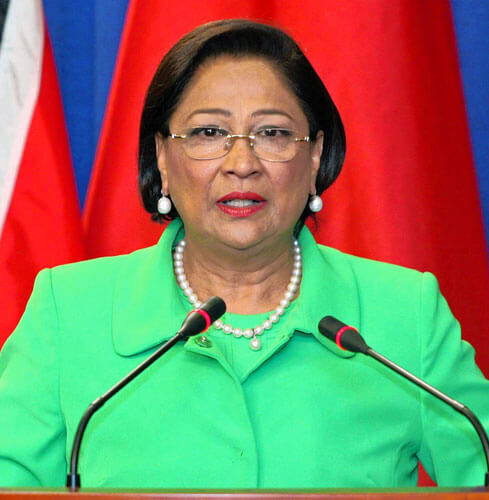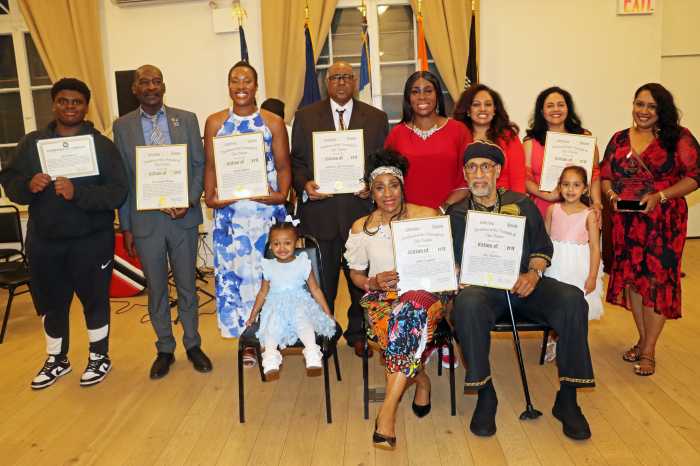Like all prime and national security ministers before her, Trinidad’s Kamla Persad-Bissessar is so frustrated with the number of annual murders in Trinidad that she is now leading a revived and spirited campaign to resume hangings for criminals convicted of cold blooded murders.
As this week began, official records were showing that 399 people had been murdered so far for the year and given the fact that a killing occurs every 36 hours on the twin-island republic with Tobago, the final tally will likely be closer to 410 or so before the year closes.
The prime minister who faces a general election by mid September that polls show she and her umbrella People’s Partnership (PP) would most likely lose, the head of government at the weekend vowed to retable a death penalty hanging bill back to parliament for approval as a means of stemming the continuous flow of blood in Trinidad.
The first attempt failed two years ago because the opposition had refused to side with government, disagreeing with some of the clauses. Whether the cabinet will lobby the opposition or meets its demands for amendments is unclear but those in authorities say there are simply too many murders and the country could not be happy with its ranking as the 10th most murderous state in the world. In 2008 for example, there were 550 murders on the island, many blamed on drug and gang activities.
“We will continue with initiatives and some new initiatives. In fact, I have asked the attorney general to bring back the hanging bill for cabinet’s consideration, so we look again to introduce the death penalty for homicides, for murders. We have brought down serious crimes but the murders still remain too high and, therefore, I want cabinet to reconsider the introduction of the death penalty and to take that legislation to parliament,” she told reporters.
Apart from the defeat of the bill in parliament, efforts by governments around the Caribbean to implement the death penalty, by hanging for the most part, have been frustrated by international bodies such as the United Nations human rights appeals division which has in many instances forced authorities to hold their hands while reviews over prolonged periods are done.
Guyana, Jamaica and Trinidad, the countries with the largest number of convicted prisoners on death row, last succeeded in carrying out judicial executions more than a decade ago. Their efforts to proceed with the death penalty were also frustrated by a UK Privy Council decision in the 90s which had basically said that a prisoner on death row for more than five years would have been subjected to cruel and inhumane treatment and conditions. That forced governments to convert sentences to life or less.
The most famous of these occurred in Trinidad in 1999 when the administration of Prime Minister Basdeo Panday hanged nine men, including ‘businessman’ Dole Chadee who was at the time considered the Pablo Escobar of the region.
Persad-Bissessar said there was “empirical data” linking state executions with a reduction in violent crime and she thinks this scenario will play itself exactly along these lines in Trinidad.


























